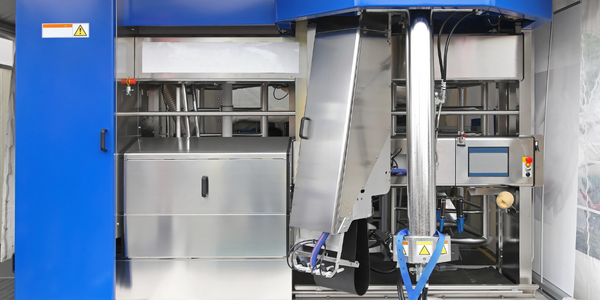Technology Category
- Networks & Connectivity - Cellular
- Sensors - GPS
Applicable Industries
- Agriculture
- Telecommunications
Applicable Functions
- Product Research & Development
- Quality Assurance
Use Cases
- Digital Twin
- Farm Monitoring & Precision Farming
Services
- Cloud Planning, Design & Implementation Services
- System Integration
About The Customer
Bartle Frere Bananas is a mid-sized, multi-generational farm located in Far North Queensland, Australia. The farm supplies both small markets and major grocery chains. Its owner, Gavin Devaney, is a recipient of the Future Farming award for his adoption of best management practices and innovative technology solutions. Devaney is committed to farming responsibly and sustainably, balancing fertilization, irrigation, and productivity while being a good steward of the land. He is part of the Data Driven Sustainable Smart Farming Project, which aims to improve environmental outcomes and productivity for Australia’s horticulture sector. Devaney's ultimate vision is to achieve market and consumer confidence by being transparent about the journey of each Bartle Frere Bananas bunch from paddock, through the supply chain, to market.
The Challenge
Bartle Frere Bananas, a mid-sized, multi-generational farm in Far North Queensland, Australia, was on a mission to improve environmental outcomes and productivity for Australia’s horticulture sector. The farm, which supplies small markets and major grocery chains alike, was facing challenges related to extreme weather systems, flooding, and rising operational costs. The owner, Gavin Devaney, was committed to farming responsibly and sustainably, which meant balancing fertilization, irrigation, and productivity while being good stewards of the land. The farm wanted to gather data from across its operation and generate insights to inform best management practices, productivity, regulatory compliance, and sustainability. Devaney wanted to prove that his operations adhered to the farming industry’s best management practices and demonstrate that the bananas at Bartle Frere Bananas are carefully grown in a more innovative and sustainable way.
The Solution
Hitachi Vantara collaborated with Bartle Frere Bananas and Applied Horticulture Research to develop a smart farming solution. The solution involved the correlation of real-time irrigation data, soil moisture, online nitrate leaching data, and weather monitoring and forecasting to inform horticulture best practice. It required bespoke software development and a configuration of Hitachi Lumada Manufacturing Insights designed for a horticulture use case. The implementation required the integration of sensor data from dozens of sources including a weather station, connectivity with a cloud platform, curation of the data, advanced data analytics, and the presentation of actionable insights. Hitachi Vantara provided overall solution design, sourcing of sensors and other technologies, and implementation including data capture, edge computing, sensors and trackers, advanced analytics, and the output interface. All of this data was analyzed and presented visually, as data, alerts, and prescriptive insights via the Hitachi Vantara Control Tower solution user interface at the farm office to inform daily management decisions and long-term planning.
Operational Impact
Quantitative Benefit

Case Study missing?
Start adding your own!
Register with your work email and create a new case study profile for your business.
Related Case Studies.
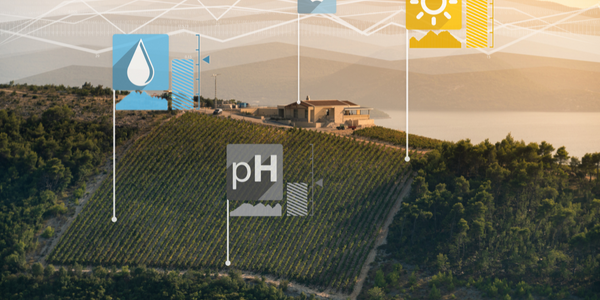
Case Study
Intelligent Farming with ThingWorx Analytics
Z Farms was facing three challenges: costly irrigation systems with water as a limited resource, narrow optimal ranges of soil moisture for growth with difficult maintenance and farm operators could not simply turn on irrigation systems like a faucet.
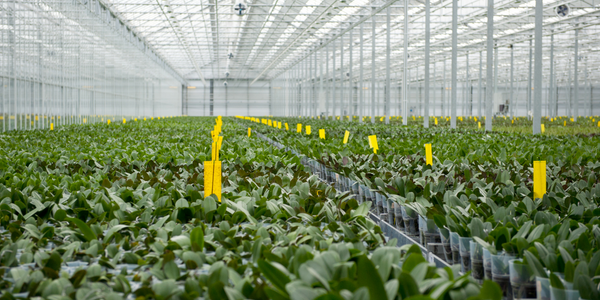
Case Study
Greenhouse Intelligent Monitoring and Control Solution
Farming Orchids is the most successful form of precision farming in Taiwan, and also the most exported flower. Orchids need a specific temperature and humidity conditions to grow and bloom, and its flowering time may not be in line with market demands, so the price collapses when there is overproduction. Therefore, some farmers began to import automated greenhouse control systems for breeding and forcing, which not only improves quality, but also effectively controls the production period and yield to ensure revenue. In 2012, an orchid farmer built a Forcing Greenhouse of about 200 pings (approximately 661 Square Meters) in Tainan, Taiwan. The system integrator adopted Advantech’s APAX-5000 series programmable automation controllers to build the control platform, coupled with Advantech WebAccess HMI/SCADA software, to achieve cloud monitoring. The staff of the orchid field can monitor important data anytime via smart phone, iPad, and other handheld devices, and control the growth and flowering conditions. System requirements: In the past, most environmental control systems of orchid greenhouses in Taiwan used PLCs (Programmable Logic Controller) with poorscalability and control, and could not be connected to the Internet formonitoring from the cloud. For advanced database analysis and networking capability, the PC platform must be adopted. Therefore, PAC Systems (Programmable Automation Controller) with both PLC programming capabilities andPC functions is a better choice.The environmental control of the Orchid greenhouse switches on and off devices like fan, shade net, cooling/heat pump, liquid flow control, water-cooling wall etc. It is controlled by a control panel of electric controllers, and is driven by a motor, to adjust the greenhouse temperature, humidity, and other environmental conditions to the set parameters.
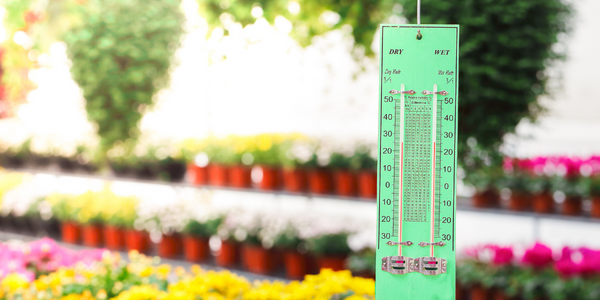
Case Study
Precision beekeeping with wireless temperature monitoring
Honeybees are insects of large economic value and provide a vital service to agriculture by pollinating a variety of crops. In addition, bees provide us with valuable products such as honey, beeswax, propolis, bee venom, etc. Monitoring of honeybee colony health, population, productivity, and environmental conditions affecting the colony health have always been exceedingly difficult tasks in apiculture. Research has shown that even small deviations (by more than 2°C) from the optimal temperatures have a significant influence on the development of the brood and the health of adult bees.
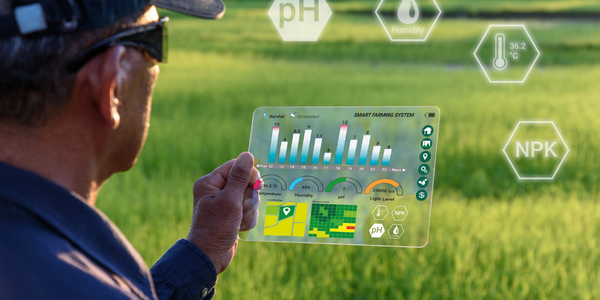
Case Study
Enabling Internet of Things Innovation in Agriculture
DigiBale, wanted to apply technology know-how and IP from implementations successfully to more agriculture sectors including cotton, forestry, sugarcane and cattle. However, farmers and growers still have worries about the connected technology.








